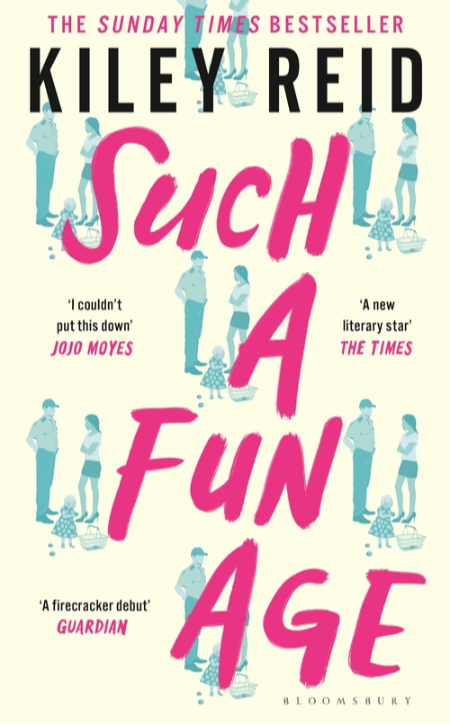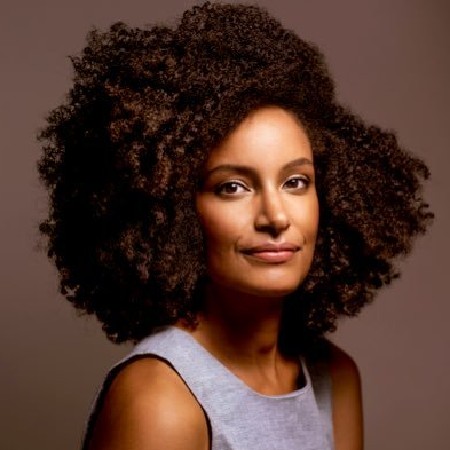
On the surface of it, society looks a fairly straightforward set of exchanges.
You have ideals, you act them with nobleness of intent and efficacy of action, you witness injustice, you stand up against and hopefully right the wrong, you get to know someone, become their friend and possibly even more, only with the most altruistic of intentions and certainly with no drive or desire to benignly exploit them in any way.
But what seems simple and straightforward in theory, especially when you are part of the social or racial group that calls the shots in that society, is often anything but, especially for the people who live outside your cosy bubble where up is up and down is down, or at least that is what you tell yourself to sleep soundly at night.
In Kiley Reid’s brilliantly engaging and illuminating debut novel, Such a Fun Age, what we think is true and what turns out to be actually true are two completely different things, something that becomes confrontingly clear, to the protagonist and by extension to readers, by the book’s end.
Emira Tucker is a 26-year-old black woman living in Philadelphia, the holder of a four-year-degree from Temple University and a member of a Maryland family whose other members are all accomplished in their particular field of interest.
By way of contrast, Emira feels a little lost, uncertain of what her next step to adulthood is, a confusion compounded by close friends, Zara, Josefa and Shaunie, all of whom seem to know seem to know what they want and what they need to make it happen.
“As Peter gave two policeman a statement, Alix scooped up the glass with a hand towel in the glaring light from the chandelier. In between long, sad strokes, she told herself to wake the fuck up. To write this book. To live in Philadelphia. To get to know Emira Tucker.” (P. 35)
It’s not like Emira is doing nothing of value with her life – she is a devoted part-time paid babysitter to Briar, the precociously garrulous three-year-old of wealthy white people in the suburbs who have recently transplanted themselves from New York City – but while she loves her small, talkative, life-curious charge and believes her role in Briar’s life is important, it doesn’t feel like a real career.
For all her inner turmoil, however, Emira feels that sticking around in Briar’s corner is vital, particularly because her feminist white blogger mother Alix (said with a decidedly French accent, such is her level of affectation, though she would never admit to such) seems more concerned, for all her pious pronouncements about making the world better, with capturing the perfect Insta moment, with pretending she still lives in NYC and tending to Briar’s younger sister Catherine, who is the compliantly quiet child Alix always wanted.
Everyone in this equation is either rationalising less than ideal life choices for either the right though not self-beneficial of reasons (Emira) or for transparently self-serving ones, the truth of which can never be admitted lest the whole house of white privilege cards come crashing down (Alix).
Which is duly begins to do one night when, after an incident that involves calling the police to the house, Alix calls Emira away from a party at 11pm and asks her to take Briar to an upmarket supermarket where she is accused of kidnapping the three-year-old by an overly-officious security guard and a do-gooder older white female shopper.
The entire charged incident, which a well-meaning fellow shopper Kelley records on his mobile, reveals more about Emira’s place in the world and Kelley, Alix and her husband’s complicity in it than anyone would like to admit and so, at Emira’s request, who knows all too well how the release of the video would play in the court of white public opinion, the recording is sent to her, deleted off Kelley’s phone and promptly forgotten.

Only, of course, as Reid skilfully, wittily and scathingly illuminates, you can sweep these types of things under the rug because they expose to the rotten core that what people, especially white people who holds most of the cards to societal success, believe society is is often what it mostly certainly is not.
Kelley, for instance, who is on the whole, decent, charming and lovely man who asks Emira out when he sees her again on the train, would say he is an upstanding individual who has a lot of genuine black friends and who has dated women of colour almost exclusively.
On the surface, noble and laudable things; but dig down a little deeper, and his preoccupation with black culture seems less about doing the right thing and more about making him feel like he is doing the right thing.
Similarly with Alix, whose motives are murkier but who would place herself as the very bastion as of goodness, decency and solid liberal, middle class values.
But as Such a Fine Age unfolds, page by insightfully-written, compellingly-told page, it becomes clear that while they might mean well, the results of their well-intentioned actions have anything but a beneficial result for Emira, who might not know what she wants from life but understands better than Kelley or Alix how society often acts to curtail the simple act of making your own decision on your terms.
“Emira bit her bottom lip. Kelley made her feel both extremely grown up and consumed with infantile reactions. Her heart could barely handle him remembering her birthday; she wasn’t going to touch the L-word today. ‘Ummm, nope.’ She smiled. ‘I had three things on my list. So I’m good.'” (P. 196)
This is a clever novel that bristles with biting satire that lays to exposed view, the lies people tell themselves to get by.
Emira’s lies, such as they are, are relatively harmless; she does love Briar and does want the very best for her, but staying with Alix is an act as much of comfort as devotion and really needs to commit to something more meaningful and longer-lasting but for the right reasons.
But for Alix, in particular, who is the epitome of white mommy blogger-ism circa 2015/16 when the novel is set, the lies are dangerous, with every page she is allowed to air her voice making the subconscious duplicity of what she believes about herself, society and others, especially Emira with whom she has a weird, needy, stalker-y fixation, all the more transparent.
Cloaked as they are in such attractive packaging – Alix, and Kelly, both believe the cosy little lies they tell themselves about the “goodness” and “rightness” of the loves they lead, and act accordingly; they might have good intentions, but that counts for little when the resulting outcomes are so deleterious for someone like Emira who is caught in their cultural crossfire – it’s hard to see who they are as anything but a force for good.
But Reid lifts the lid on their literally white-washed lives, writing with such accomplishment and insight that you have to keep reminding yourself this is a debut novel, you realise that society is fabricated on all kinds of lies, some dangerously inclined, some not, but all of them resting on the a worldview that is not one in which everyone can participate fully or equally.
Such a Fun Age is breathtakingly good, replete with startlingly arresting characters with lives that unfold in their telling slowly but powerfully, a narrative that exposes with vivacity and honesty while being witty, funny and disturbingly real, and an understanding that though we wish the world to be one thing, it is often anything but, and a whole lot more practical authenticity, uncloaked in self-serving platitudes and piety, might go a long way to things better for everyone involved.